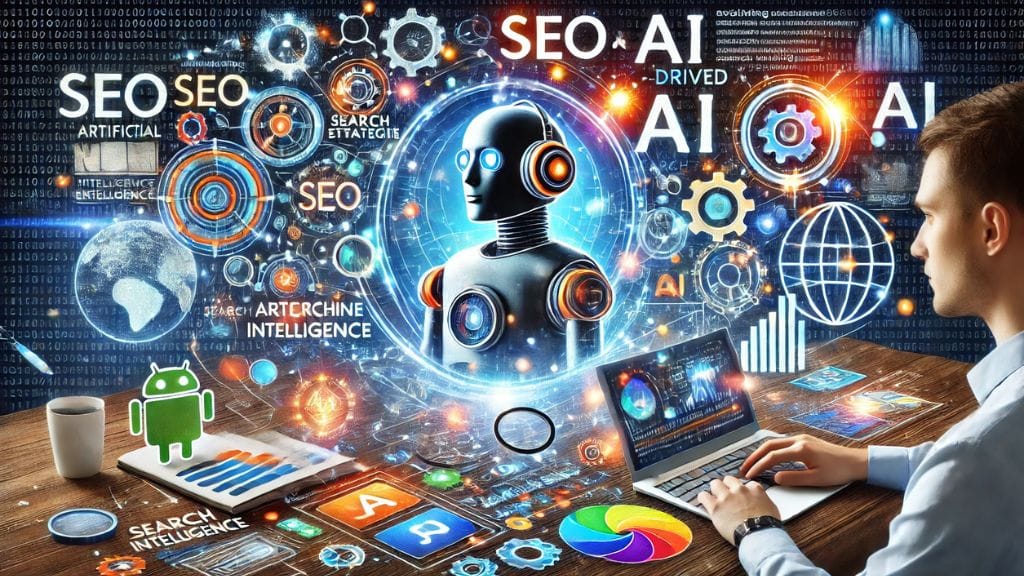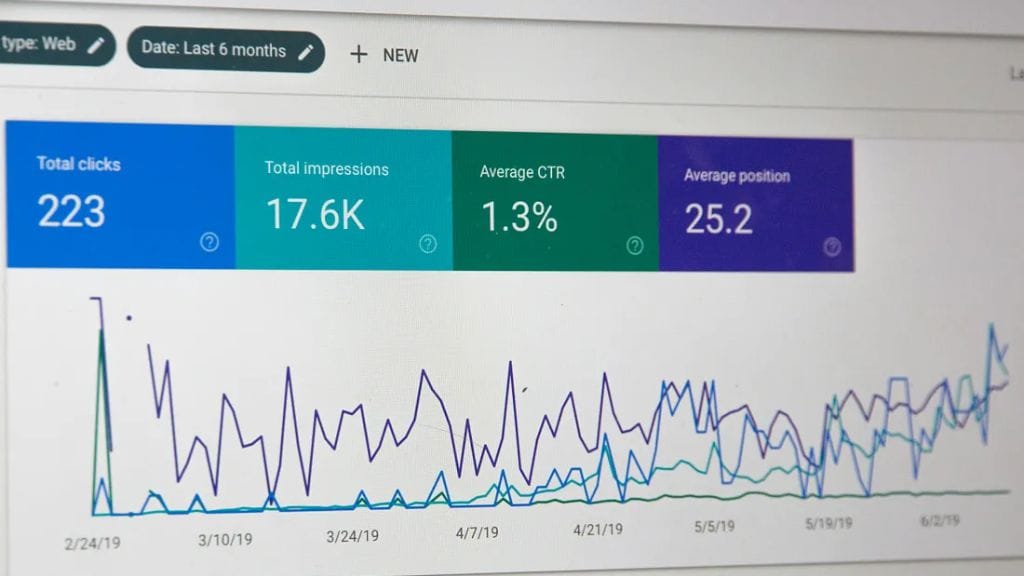The rise of AI-powered search engines such as Google Bard and ChatGPT with browsing is reshaping how businesses approach search engine optimization (SEO). As generative AI becomes more sophisticated, understanding how it influences SEO practices is crucial for staying ahead of the competition. This article explores the latest SEO trends emerging from AI-driven search engines, emphasizing the importance of adapting SEO strategies to these technological shifts.
How AI is Changing SEO Strategies
In recent years, artificial intelligence (AI) has made significant strides, not only in enhancing the way we live and work but also in the realm of search engines. Search engines like Google and Bing have integrated AI technologies to provide more personalized, context-aware search results. The introduction of AI-powered search engines such as Google Bard and ChatGPT with browsing capabilities has led to a paradigm shift in how SEO professionals need to approach search engine ranking.
AI-driven search engines are revolutionizing the process of content creation, keyword targeting, and user experience, making traditional SEO methods less effective. This shift requires businesses to rethink their SEO strategies to ensure that their content is optimized for these AI systems.
In this article, we will explore how generative AI and AI-powered search engines are influencing SEO tactics and what businesses can do to stay ahead of these changes.
What Are AI-Driven Search Engines?
Defining Generative AI and AI-Powered Search
At the core of AI-driven search engines lies generative AI, which can produce responses or generate content based on user inputs. Unlike traditional search engines that rely primarily on keyword matching, generative AI understands context, intent, and nuances in language. This allows these AI systems to deliver more relevant and personalized search results.
For instance, Google Bard and ChatGPT with browsing have been designed to provide not just direct answers but conversational responses that understand user intent. Generative AI systems analyze and process vast amounts of data to predict and generate responses that feel natural and intuitive.
Popular AI-Driven Platforms: Google Bard, ChatGPT with Browsing
- Google Bard is an experimental AI chatbot that provides conversational responses to complex queries. Unlike the traditional list of links returned by Google, Bard generates human-like answers, often drawing from multiple sources, including Wikipedia, news websites, and other public content.
- ChatGPT with Browsing, a product of OpenAI, combines generative AI with browsing capabilities to pull in real-time data from across the web, answering questions that require up-to-date information.
Both platforms provide opportunities for SEO experts to rethink their approach, as these AI-driven systems prioritize context and relevance over the traditional ranking factors like keyword frequency.
Impact of AI on SEO Tactics
From Keyword Targeting to Intent Recognition
In the past, SEO strategies revolved around optimizing for specific keywords. However, with the advent of AI-driven search engines, the focus has shifted from simply using keywords to understanding and optimizing for search intent.
AI-powered systems like Google Bard and ChatGPT focus on what the user is truly trying to achieve with their query, rather than just matching search terms. For example, if a user asks, “How to start a business in Delhi,” AI-driven engines understand that the user wants actionable steps, resources, or guides on business registration, not just an article with the words “start a business.”
Personalization and User-Centric SEO
AI is transforming search personalization. By analyzing user behavior and preferences, AI-driven search engines deliver personalized content that aligns with the user’s specific needs. This means that SEO strategies need to focus on creating content that resonates with individual user journeys.
The rise of personalized search results means that generic SEO tactics—such as broad keyword targeting—are less effective. Local SEO and intent-based SEO are becoming increasingly important as businesses need to cater to users’ preferences, location, and search habits.
Content Creation with Generative AI
AI’s Influence on Content Ideation and Production
Generative AI is transforming how content is created. ChatGPT and Google Bard are not just search tools; they are also tools for content creation. These AI tools help in brainstorming ideas, drafting content, and even suggesting keywords and topics that are highly relevant to the target audience.
However, while AI can assist with content ideation, it’s essential to remember that AI is not a substitute for human creativity and expertise. The key to successful SEO in the AI era is creating authentic, original content that resonates with real people.
Importance of Original and Humanized Content
With AI tools generating content at scale, originality and authenticity are more important than ever. Search engines, including AI-driven systems, reward content that is unique and provides real value to users. While AI-generated content can be helpful in generating ideas or providing initial drafts, human input is essential for adding nuance, emotion, and context.
Keyword Research Evolves with AI
Beyond Keywords: Understanding Search Intent
The traditional approach to keyword research often involved identifying high-volume keywords and targeting them on a webpage. However, AI-powered search engines focus on semantic understanding—recognizing the context of a search query rather than just matching keywords.
For example, AI tools can understand that “cheap digital marketing services in Delhi” and “affordable SEO services for startups in Delhi NCR” are related but distinct, addressing different user intents. SEO experts can no longer rely solely on keyword research; they must also consider the deeper user intent behind the search terms.
The Role of Semantic Search in AI-Driven SEO
Semantic search allows AI-driven systems to understand synonyms, related terms, and the overall context of a query. This means that long-tail keywords and related terms will play a more important role in SEO, as AI looks at the broader picture rather than a single keyword.
Optimizing for Voice Search and Conversational Queries
Adapting to the Rise in Voice and Natural Language Searches
With the widespread use of voice assistants like Siri, Alexa, and Google Assistant, more people are using natural language to search. AI-driven systems are better equipped to handle these types of conversational queries.
To optimize for voice search, businesses must focus on more natural, long-tail keywords and ensure their content answers specific questions directly. Voice search SEO also requires ensuring that content is mobile-friendly and locally optimized to cater to users on the go.
Leveraging Long-Tail Keywords for AI-Powered Search
AI systems like Google Bard prioritize the context of a query, making long-tail keywords and conversational search more important than ever. Optimizing for natural language queries is key to remaining competitive in an AI-driven search world.
Visual and Video SEO for AI-Enhanced Search
How AI Interprets Multimedia Content
AI-powered search engines are becoming increasingly adept at interpreting visual and video content. AI can understand images through image recognition and video content through automatic captioning and context analysis.
To improve visual SEO, ensure that multimedia content is optimized with relevant alt text, captions, and metadata. This allows AI-driven systems to more effectively index and rank multimedia content.
Optimizing Video and Visuals for AI Search Algorithms
For businesses that use video content, video SEO is crucial. AI algorithms can now interpret and index video content based on its metadata, title, description, and transcripts. This means that businesses must optimize video content with detailed metadata and ensure it is easily accessible to search engines.
AI and Local SEO
Hyper-Personalized Local Search Results
AI has made local search more hyper-personalized. AI systems understand local nuances and serve more accurate search results based on user location and preferences.
For businesses like Ranks Digital Media, a local SEO agency in Delhi NCR, understanding these changes is essential. By optimizing content for local search queries, such as “SEO services near me” or “affordable digital marketing services in Delhi NCR,” businesses can gain a competitive edge in their local markets.
Strategies for Local SEO Services in Delhi NCR and Beyond
For businesses in Delhi NCR, like Ranks Digital Media, implementing local SEO strategies that focus on user intent and personalized search is crucial. Leveraging Google My Business, collecting local reviews, and optimizing for local keywords are essential for staying competitive in an AI-driven search world.
On-Page SEO for AI-Driven Search Engines
Enhanced Use of Structured Data
One of the most significant changes in AI-driven SEO is the growing importance of structured data. Structured data, or schema markup, helps search engines understand the content on a page better. It provides explicit information about your content, making it easier for search engines to extract and display relevant information in search results. AI-powered systems are especially adept at interpreting structured data to enhance search results, allowing businesses to stand out with rich snippets and featured snippets.
For instance, including structured data for products, events, or reviews helps AI engines generate more accurate and helpful search results. This is particularly valuable in industries where precise details matter, such as in the local SEO space, which is crucial for small businesses in Delhi NCR.
Optimizing for AI’s Complex Understanding of Content
AI-driven search engines are now capable of understanding content at a deeper level. They go beyond the traditional keyword match and focus on the context of the content, its semantic relevance, and how it connects to a user’s intent. To optimize for these sophisticated systems, content creators should ensure their content is well-organized, comprehensive, and relevant to the user’s query.
Incorporating latent semantic indexing (LSI) keywords—terms related to the main topic—helps AI better understand the context of the content. This, in turn, improves your chances of ranking higher for relevant queries. AI-based search engines prioritize content that genuinely answers user questions and provides value.
Technical SEO in the Age of AI
Technical SEO plays a crucial role in ensuring that search engines can crawl, index, and rank your content. As AI-powered search engines become more advanced, they rely heavily on technical elements like site architecture, schema markup, and mobile responsiveness to evaluate a website’s quality.
For businesses aiming to stay competitive, it’s essential to optimize the backend of your website. This includes ensuring that pages load quickly, are free of broken links, and have clean, well-organized code. Technical optimizations, combined with an AI-focused content strategy, can help improve a site’s performance across all search engines.
Website Speed and Mobile Optimization
Ensuring Fast Load Times for AI-Driven Search Engines
AI search engines assess website load times as a key ranking factor. Users are increasingly impatient, and slow websites lead to higher bounce rates and decreased user satisfaction. AI systems consider website speed as a major indicator of a site’s usability and quality.
Mobile optimization is equally important, especially with the rise of mobile-first indexing. AI-driven search engines prioritize mobile-optimized sites in rankings, meaning that businesses must ensure their websites are responsive, easy to navigate, and quick to load on mobile devices.
Incorporating lazy loading for images and using content delivery networks (CDNs) are excellent strategies for enhancing load times and improving mobile user experience.
Ensuring Crawlability and Indexing for AI Search Engines
AI systems also rely on the crawlability and indexing of websites. If your website’s pages aren’t crawlable by search engines, they won’t appear in search results. This means you need to ensure that robots.txt files are set correctly, and that all essential pages are indexed properly.
Sitemaps are particularly important for AI-powered search engines to understand your website’s structure and content. You should regularly audit your site for crawl errors and fix any issues that may prevent AI systems from fully indexing your content.
User Experience (UX) as a Ranking Factor
AI’s Role in Assessing UX
User experience (UX) has become a more prominent factor in AI-driven SEO. AI search engines are increasingly capable of evaluating how users interact with a website. They can analyze factors such as dwell time, bounce rate, and how often users click on links.
For instance, if users quickly bounce from your page because they can’t find what they’re looking for, AI algorithms will interpret this as a sign of poor UX and could lower your rankings. Conversational AI tools like Google Bard may even be able to assess how engaging and user-friendly your content is.
Designing Websites with User Intent in Mind
In the AI era, SEO isn’t just about optimizing content—it’s about creating a user-first experience. Understanding user intent and designing your website’s navigation and content to meet that intent will boost your site’s engagement metrics and search rankings. Clear CTAs (calls to action), easy-to-read layouts, and content that provides answers to user questions are essential for ensuring a positive user experience.
The Growing Importance of E-A-T (Expertise, Authoritativeness, Trustworthiness)
Building Authority in the AI-Driven SEO World
In the world of AI-driven search, E-A-T (Expertise, Authoritativeness, Trustworthiness) has become an even more important ranking factor. AI search engines, especially those like Google Bard, prioritize content that demonstrates expertise in the subject matter, authoritative sources, and trustworthy information.
To rank well in AI-driven systems, businesses must establish themselves as credible sources in their niche. This can be done by producing high-quality, well-researched content, earning backlinks from authoritative websites, and ensuring that their website and content align with recognized industry standards.
Importance of E-A-T for Content Creators
Content creators need to focus on building authority in their field. This can involve engaging with industry experts, writing in-depth articles that demonstrate expertise, and ensuring that all content is fact-checked and free from misinformation. AI systems reward businesses that consistently deliver reliable, well-researched content.
Emerging SEO Tools and AI Integrations
AI-Powered SEO Tools for Data Analysis
The future of SEO is closely tied to AI-powered tools that offer advanced data analysis. These tools can track user behavior, identify ranking opportunities, and even automate content optimization tasks. For businesses, using these tools to identify gaps in their SEO strategy and continuously optimize based on real-time data is essential.
AI integrations in SEO tools allow businesses to gain insights that were previously difficult to uncover manually. For instance, AI-driven SEO tools can recommend content updates or suggest new keywords based on search trends and AI-driven behavior analysis.
Automation in SEO Workflows
AI is automating many aspects of SEO, including keyword research, content creation, and even link building. By leveraging AI-powered automation tools, businesses can save time and improve the accuracy of their SEO efforts.
Automation allows teams to focus on high-level strategy while AI tools handle repetitive tasks like analyzing data, generating reports, and updating content for SEO relevance.
Case Study: Implementing AI-Driven SEO with Ranks Digital Media
Examples of SEO Success in Delhi NCR Using AI Trends
Ranks Digital Media, as a leading SEO agency in Delhi NCR, has successfully helped numerous businesses adapt to AI-driven SEO trends. For instance, a client in the local retail space saw a significant increase in search rankings and organic traffic after implementing an AI-powered content strategy. By focusing on user intent, mobile optimization, and enhanced content creation using AI tools, the business experienced a 40% increase in local search traffic.
How Ranks Digital Media Helps Small Businesses Adapt
At Ranks Digital Media, we assist small businesses in Delhi NCR to optimize their websites for AI-driven search engines. Our approach combines AI-powered keyword analysis, voice search optimization, and E-A-T enhancement to ensure that small businesses can compete in the digital age. By continuously monitoring the latest AI trends and adapting strategies, Ranks Digital Media ensures that businesses stay ahead of the curve and maintain high visibility in search results.
Conclusion
AI-driven search engines are significantly changing the SEO landscape, emphasizing the importance of understanding search intent, creating high-quality content, and optimizing for personalization. By staying updated with AI advancements, businesses can ensure that their SEO strategies remain effective and competitive.
Whether you’re a small business owner in Delhi NCR looking for affordable SEO services or a digital marketing agency aiming to enhance your SEO services, embracing these AI-driven trends is crucial for long-term success. Ranks Digital Media, a leading SEO agency in Delhi NCR, is committed to helping businesses navigate these changes and enhance their online presence in an increasingly competitive digital world.
FAQs
1. How is AI changing SEO?
AI is shifting SEO from a keyword-centric approach to a focus on user intent, making search results more personalized and relevant.
2. Why is E-A-T important in AI-driven SEO?
AI systems prioritize Expertise, Authority, and Trustworthiness (E-A-T), as they help ensure that the content provided to users is reliable and credible.
3. How does voice search impact SEO?
Voice search requires SEO strategies to focus on conversational keywords and long-tail phrases as users interact with search engines differently.
4. What are AI-powered SEO tools?
AI-powered tools can automate SEO tasks, analyze user data, and optimize strategies based on evolving algorithms and search intent.
5. How can Ranks Digital Media help with AI-driven SEO?
Ranks Digital Media helps businesses stay ahead by integrating AI-enhanced SEO strategies, ensuring optimal visibility and performance in AI-driven search environments.






